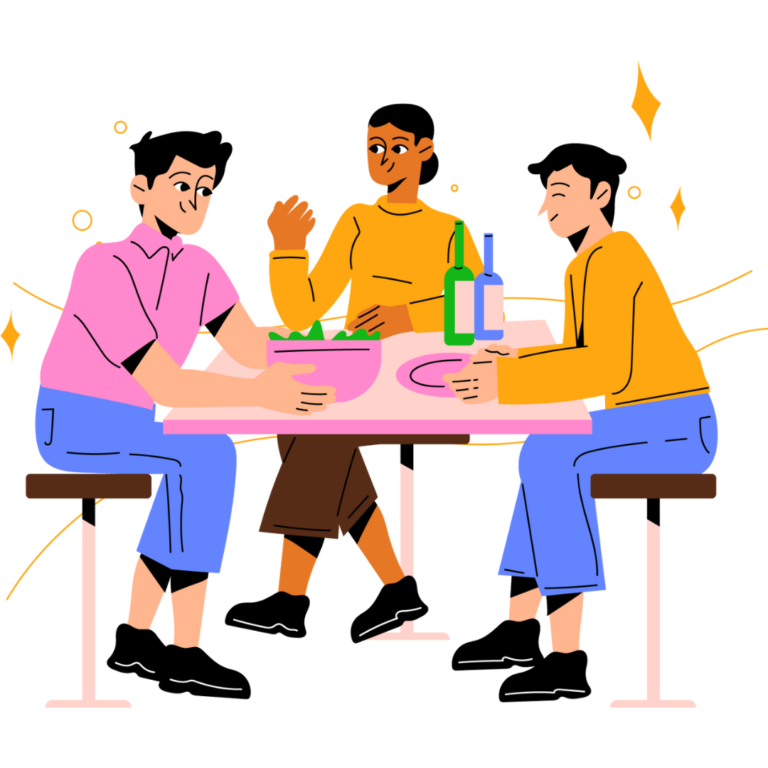Adolescents and teenagers between the ages of 13-18 face critical changes in their lives, including but not limited to making new friends, moving to new schools, developing new emotions and perceptions, and being exposed to new things through social media. Somethings that can particularly rise during this time are eating disorders. By definition, an eating disorder is a behavioral condition characterized by severe and persistent disturbance in eating behaviors and associated distressing thoughts and emotions. Some of the most common types of this disorder include Anorexia, Bulimia, and Binge Eating Disorder. Recognizing the signs early and understanding methods of prevention and treatment are essential steps in supporting adolescents through these challenges.
Signs
There are multiple signs of eating disorders that adults, peers, and other people in the affected teens’ lives can be aware of. These signs are varied and can be either subtle or dramatic but should be noted nevertheless.
Body Insecurity
Often, teens with eating disorders will complain about the physical appearance of their body, especially in comparison to others, particularly in their age group. For example, a teen saying that they are “so fat,” is an indicator of them being insecure of their own body, especially if they make that comment in a serious and not joking tone. These comments should be paid particular attention to if they are distorted; for example, if the teen is visibly a normal weight but they think and say that they are overweight.
Changes in Eating Practices
Changes in eating practices are also signs of eating disorders, and they can come in multiple forms. Eating in secret is one that can be identified by empty wrappers and/or containers dispersed around a teen’s room/living space and is characterized by a teen’s guilt/shame of overeating. Restriction of certain foods in addition to extreme preoccupation with calories and/or dieting is another sign that should be given attention, especially when it seems to follow a diet or eating plan of someone trying to lose weight or someone much older who needs to restrict their diet due to medical reasons. Skipping meals and fear of eating in front of others are also significant signs.
Physiological/Emotional Changes
The physiological changes are more “medically” identifiable, and can include frequent complaints of feeling cold, dizziness, fainting, fatigue, gastrointestinal problems, or changes in menstrual cycles (for females), and they are especially significant if the teen has always been generally healthy. The emotional changes are more general and can be identified moderately easily and can include withdrawal from social activities – especially ones that used to be enjoyable – mood swings, and irritability.
Prevention
Though eating disorders are formidable and can seem difficult to deal with, there are multiple measures teens alongside adults in their lives can take to prevent these disorders from ever arising.
Media Literacy
Often, eating disorders arise due to distorted views of what other people look like because of social media. Tools like Photoshop make it easy for content creators to completely alter their appearance to look “better,” often, probably, being unaware of the negative impact they are placing on their audience, especially adolescents. However, adults can teach their teens about these tools and tactics in the early stages of them having social media access, and they can promote critical thinking regarding the credibility of the content they receive to prevent any eating disorders or negative thinking to arise.
Encouraging Healthy Activities
Adults can promote, to their teens, both healthy eating and physical activities. They can prevent, early on in their child’s life, labeling foods as either “good” or “bad,” rather focus on promoting conscious eating and making deliberate meal decisions. In addition, adults can promote physical activities that are enjoyable and emphasize fun, skill development, and health rather than competition or weight control. As a whole, they can encourage teens to appreciate their bodies for what they can do rather than how they look.
Treatment
Treatment, of course, starts with recognizing that you have an eating disorder, which can be difficult to deal with but is important to get the right treatment. It would be best to start with your primary care practitioner (PCP) who may refer you to a mental health professional like a psychologist and/or a dietitian. The actual treatment can come in varying measures of strength based on how intense the disorder itself was.
Psychological Therapy
This type of treatment focuses on exchanging unhealthy habits for healthy ones, normalizing eating patterns, and learning how to monitor eating. Within this treatment there are various types of therapy including Cognitive behavioral therapy, Family-based therapy, and Group cognitive behavioral therapy.
Medications
Though medications cannot completely cure eating disorders, they can help, especially when combined with psychological therapy. Antidepressants are a common medication used as they improve moods, reduce obsessive thoughts, stabilize serotonin levels, and reduce impulsivity. Other medications like fluoxetine and olanzapine are also used.
Hospitalization
In extremely severe cases, some teens may need to be hospitalized. This occurs if they have severe malnutrition, electrolyte imbalances, dehydration, and more. During this treatment plan, to rehabilitate their nutrition, medical staff give the hospitalized teens structured meal plans, properly nutritious foods, and essential nutrients.
In conclusion, eating disorders are identifiable, preventable, and able to be treated, however they should not be normalized. Though they are on the rise amongst teens and they can be treated, a collective movement to decrease them and prevent them from even happening should still be present. Let us strive to foster a culture of understanding, support, and proactive intervention to ensure that individuals of all ages can lead healthy, fulfilling lives free from the grip of eating disorders.
Written by: Nithya Rupavatharam, Mental H2O Youth Resource Writer


